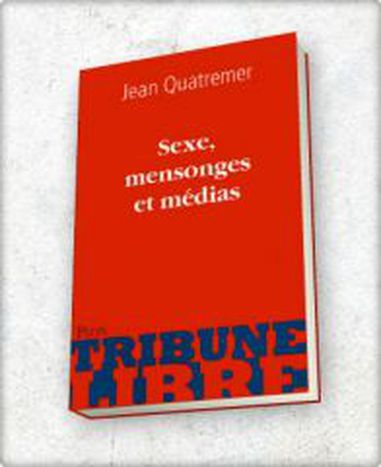
Sex, Lies and The Media: The Sordid Threesome Unearthed by Jean Quatremer
Published on
By Aris Kokkinos Translated by Danica Jorden On his blog in 2007, Jean Quatremer, Libération correspondant in Brussels, was the first journalist to discuss Dominque Strauss-Kahn’s problematic relationships with women. He has today just finished a book on the DSK affair and its effect on journalism. He answers Cafebabel Brussels questions.
Is the connivance between journalists and politicians specific to France? Have similar cases occurred in Brussels?
There was a time when journalists were conniving very actively with European institutions, which ended with the fall of the Santer Commission. One of the problems with these types of relationships is that when a journalist marries a politician, he brings his little black book to the marriage. That’s the case with Anne Sinclair and Dominique Strauss-Kahn. She got her journalist friends to defend the marriage when the Sofitel affair broke. That’s the trap in these marriages: not only does the journalist get involved in conniving, but so does everyone around them.
Are there people who behave similarly to DSK in Brussels?
In 25 years of journalism, this is the first time I’ve found a politician who behaves like this with women. I didn’t stake out his bedroom, I gathered witness accounts that confirmed that this person had a problem. Besides, if I hear of a European politician who harasses one of his female subordinates, and I have amassed the proof, I would bring the affair to light.
You say that Anne Sinclair espouses a Pompidou view of society, with reference to Article 9 on the protection of privacy. Does one have to be politically on the right in order to be like Pompidou?
No! That’s just it, since I published this book, the press on the left has not supported me, even at my own newspaper, which fortunately is changing thanks to Nicolas Demorand. But I find it very juicy to see journalists on the left defend a vision of society that dates to Pompidou, since Article 9 was a law attempting to limit the freedom of the press.
In 2007, you published an article about DSK on your blog, something you couldn’t have done in the paper version of Libération. Has the frequency of sexual topics on the internet also liberated what journalists can write?
The internet is in the process of profoundly changing journalism. That’s why I wrote this book. If the press does not rapidly adapt, we’re going to disappear. Because information is no longer vertical, it’s horizontal. If journalists do not adapt themselves to this new reality, people will feed on rumours. If journalists believe they will survive by denying reality, they’re sticking their own fingers in their eyes.



